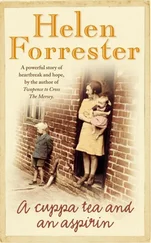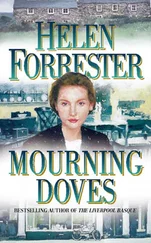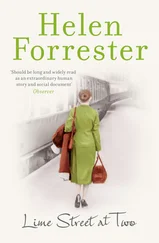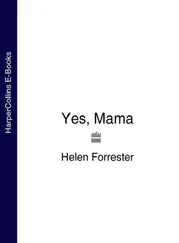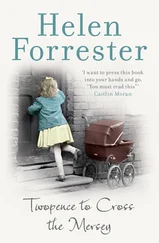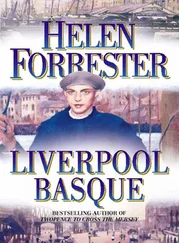As far as Barbara was concerned, the battle had seemed worth it once she had met George.
She had actually seen him once or twice in the village, a rather ponderous youth a couple of years older than herself.
She had met him again when he was on leave, handsome in his Army uniform, at a Red Cross dance held in the church hall. He had, he told her, not been much at home since leaving school; at first he had been learning his trade as an apprentice to a stone mason, working on repairs to Chester Cathedral. Then once he had his journeyman’s papers, he had found a place working on the new Church of England Cathedral in Liverpool. He loved his work; he was devoted to his cathedral. But cathedral building can be put on hold until wars are finished, so George had been called up.
After Barbara and George’s marriage in 1942, the newlyweds and Phyllis Williams had all three cherished hopes of living together in the bed-and-breakfast after the war was over. The women would continue to run it, and George looked forward to returning to his full-time work as stone mason on the unfinished cathedral.
Phyllis Williams had been very pleased to acquire such a well-placed, sensible young man as a son-in-law. Suddenly, the need to keep the bed-and-breakfast going had acquired new meaning for her; it would be a great place for grandchildren, and the three of them would be quite comfortable financially.
Both women had been crushed and bewildered by George’s death. But other people were dependent upon their business, and both women worked mechanically to keep the shabby farmhouse open.
‘It’s the small nightmares wot keeps driving you crazy,’ Phyllis would lament. ‘Some of them is the last straw.’ And they would both blow their noses, and do their best.
Phyllis, however, became very worried about her widowed daughter as she watched her decline into a dull, disinterested woman, who rarely went out socially. It wasn’t that Barbara did not do her share of the work of their little business; she did more than enough, and she knitted and sewed industriously to help eke out their sparse clothes-rationing coupons.
‘You know, Ada, there’s no life in her; and she’s too young to give up like she is,’ Phyllis had said anxiously to George’s mother. Ada was herself a widow who did not have much life in her either, except when talking about her garden, when her face would occasionally light up.
‘You know and I know, Ada, that you just have to put the war behind you and start again.’
Ada Bishop sighed deeply. Phyllis Williams was the bravest little soul she knew.
‘Perhaps, in the back of her mind, she hopes he’ll turn up again; it’s been known to happen,’ suggested Ada. ‘You don’t always think quite sensible when you’re young, do you? I know he’ll never come home. But she may still hope.’
‘You don’t always think sensible even when you’re older,’ replied Phyllis, with a wry smile. It had been hard for her to accept that her own husband had been torpedoed in Liverpool Bay in 1941, and would never return. But a lot of seamen never had a grave other than the sea. Then she said, with sudden inspiration at the thought of a grave, ‘Perhaps she’d see different if she could look at George’s grave! She’d really know then.’
The mothers agreed. They persuaded Barbara that she should take a break and go to Normandy.
So, after some argument, a listless Barbara had drawn on her wartime savings – it had been easy to save in wartime, because there was very little to buy – and had gone to see Thomas Cook.
Until catching the ferry at Dover and her subsequent arrival in Bayeux, she had felt fairly calm about the visit; in fact, she had regarded it as an unusual, but welcome break, taken to please Ada and Phyllis.
Now, thin and workworn, Barbara faced her loss as bravely as she could. She was physically exhausted, despairing in her own loneliness and that of her overworked half-fed mother, bedevilled by the continued strict rationing – and by the cold, the everlasting cold which Britain had endured in that hopeless winter of 1947–48, the lack of gas and electricity – and food. Would there ever be any let-up, she wondered. There seemed to be absolutely nothing to look forward to.
While travelling to France, she had dwelled on the miserable condition of her home. It had been, in 1939, such a pretty seaside bed-and-breakfast establishment, with an excellent reputation.
The declaration of war had put an end to that. The house and garden had been ruined a few days before the war actually began.
Children and their mothers were evacuated from Liverpool and billeted upon them. She and Phyllis, with three extra mothers in the kitchen, had been thrown into chaos. They had accepted, however, that these refugees from the heavy bombing that was daily anticipated had to be housed. They did their best to cope.
She shuddered when she remembered the day she had discovered that all their beds had bugs in them and the pillows had lice, brought in by evacuees from some of the worst slums in Britain.
Mercifully, the evacuees had decided they hated living in what they regarded as countryside, where there was not even a decent fish-and-chip shop, and had returned home to Liverpool, as yet unbombed.
Phyllis Williams and Barbara had had to burn the pillows, boil the bedding, and ask the Town Council to get the entire house stoved for them. It stank for days afterwards.
They painstakingly went through the bedrooms again, armed with a local store’s last tins of Keating’s powder. To their relief they found no more invaders. The kitchen and all the floors in the house were scrubbed and polished.
The front garden was a mess, tramped over by both children and adults.
Barbara wanted to weep. Originally, she had herself planted the garden and it had become her hobby. Looking back, she thought how stupid it was to weep over a small garden; she had wept many more bitter tears since then.
Her mother, made of sterner stuff, said, ‘We’ll get a lad to dig it over, and seed it with grass. And we’ll put a couple of flowerpots on either side of the front door.’
Barbara acquiesced.
‘The main problem is, Barbie, it looks as if we’re not goin’ to get our usual customers. The commercial travellers is all going into the Army, and, if this summer’s any example, the older couples what used to spend their holidays with us don’t seem to be taking holidays any more. So what to do?’
‘I don’t know, Mam, but if we don’t fill up this house quickly, it’ll be requisitioned again for something.’
They sat in silence, staring at their kitchen, once more restored to order.
Then Barbara said, ‘You’re right, Mam, about the elderly couples not coming. But I wonder if they’d come if we pointed out that if France falls – and it looks as if it might – the South’ll be in range for bombing. We could offer them permanent accommodation well away from it.’
Her mother slapped her knee. ‘I think you’re right, luv. There’s one or two people as has come up from London, staying in the village already.’
They had sat down and written to some twenty elderly couples from the South-East of England, who had in times past spent holidays with them. They made Barbara’s point about likely bombing, and the comparative safety of the North.
The nervous anticipation in the South of being bombed was sufficient. Within two weeks, they had all their eight bedrooms filled, housing a total of seventeen people. Their biggest bedroom held three quarrelsome, complaining old sisters, who proved to be the most trying of their hastily acquired visitors.
The overwhelmed local housing authority, themselves disorganised by the sudden weight of responsibility thrust upon them by the immediacies of war, decided that they could not very well dislodge such elderly refugees from the South without causing a scandal. They accepted the situation.
Читать дальше


